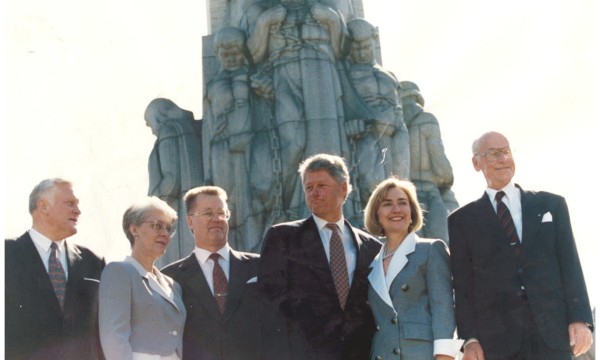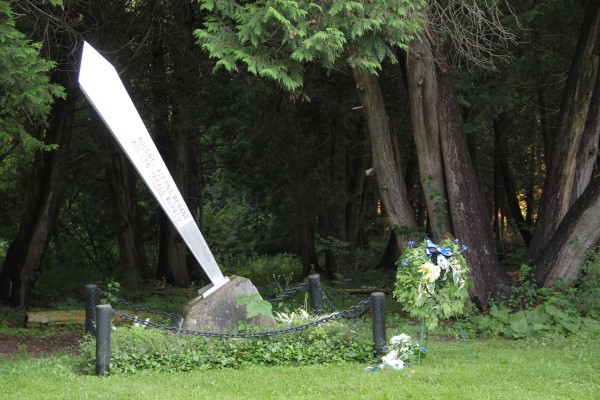Staunton, January 20 – The various Finno-Ugric peoples of the Russian Federation increasingly view themselves as part of that “umbrella brand,” an identity shift that is helping each of them to protect its national culture and allowing all of them to move toward greater cultural and political unity, according to the Udmurt activist.
In an interview with the Chuvash online paper, “Irekle Samakh,” Artem Malykh, a Chuvash activist who created the Uralistika social network in 2008, says that he drew on the work of Komiarod.ru and the Ning-style Canadian Inuit site to produce hat has become “a common space for Russian and Western Finno-Ugrics” (www.irekle.org/articles/i32.ht....
According to Malykh, the site has about 1,000 regular users but its core group is “approximately 30.” Most of those who visit the site are in their 30s or older. And because of their visits, Uralistica has become a place for “the formation of Finno-Ugric communities” and for linking these communities with others.
The Chuvash activist says that at present, the site’s most important function is to help those Finno-Ugric groups who “need the greatest media support,” such as the Mokshans and Ezryans. In such cases, the site effectively replaces the journalism outlets that they do not have or that are not reliable.
“Ethnic communities (and possibly all communities) in fact are built on an idea about oneself, on an imaginary element, on myth,” Malykh says. There is “nothing bad” about what is at one level “an irrational” substrate. And that is true not only for ethnic communities individually but for their coming together into larger groups such as Finno-Ugric.
The Finno-Ugric community, the activist says, is “an umbrella brand, which strengthens the peoples who are included in [it] culturally and in terms of their representation” to the broader world. It is especially important for Russia’s Finno-Ugric peoples as “a place for coordination” because “Finns, Estonians and Hungarians don’t have problems with cultural identity.”
“Over the course of 20 years,” Malykh says, “we have been striving to build just such a space.” At present, he and his activists are seeking to “establish Udmurt terms by coordinating he effort with the Komi and Komi-Permyaks.” That is possible because “our languages are not so far from one another.” And he added that he would like to work with the Turkic Chuvash as well.
“Coordination among the Chuvash, Tatars and Udmurts is natural,” he continues, arguing that it is appropriate for the Finno-Ugric nationss to work with their neighbors, Turkic and otherwise, and to develop multi-faceted cooperation with groups working on ecology and civic education.
Malykh acknowledges that the Finno-Ugric peoples of Russia are getting significant support from abroad. Hungary and Finland, he says, support the Finno-Ugrics primarily in the cultural and educational sectors. But Estonia is playing a broader road, promoting the “rooting [korenizatsiya]” policies of the 1930s.
That is because, more than the two other Finno-Ugric countries, “Estonia is preparing a cadres reserve” for the Finno-Ugric nations of the Russian Federation by giving them the opportunity to study in Estonia, to learn about their peoples via the Estonian media, and to feel the support of the Estonian political class for their status as peoples.
Attendance at the international Congresses of Finno-Ugric Peoples confirms this, Malykh says. The Hungarians and Finns send people “who are engaged with the Finno-Ugrics professionally: philologists, linguists, and historians.” But Estonians send political figures as well, and from across the entire spectrum.
Asked about the argument of Vadim Shtepa, a commentator who lives in Karelia and who argues that minority nationalities within regions should pursue regionalist rather than ethnic agendas, Malykh said that even the minority Karels benefit from having a republic and can use it to promote their ends.
In the case of Chuvashia, he said, that is even more important because as he concludes, “Chuvashia is a region that is national by its ethnic composition but anti-national in terms of the policies” its leaders are carrying out.
Russia's Finno-Ugric Peoples Unite as ‘Umbrella Brand,’ Activist Says (1)
Viimased kommentaarid
Kommentaarid on kirjutatud EWR lugejate poolt. Nende sisu ei pruugi ühtida EWR toimetuse seisukohtadega.
Paul Goble,
Your link doesn't work.
Please, correct Artem Malykh is an Udmurt activist according the article!
Your link doesn't work.
Please, correct Artem Malykh is an Udmurt activist according the article!
Arvamus
TRENDING
























